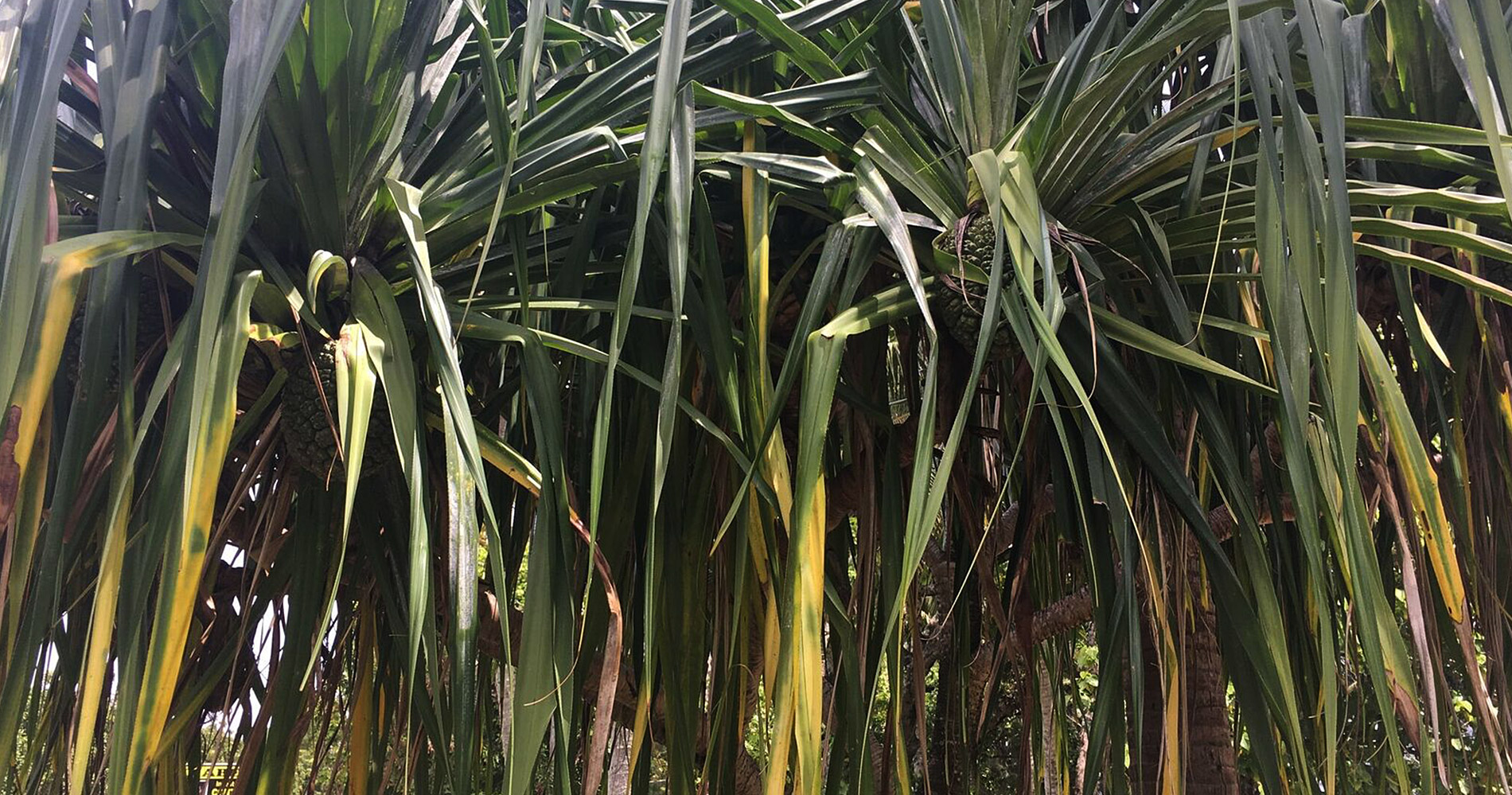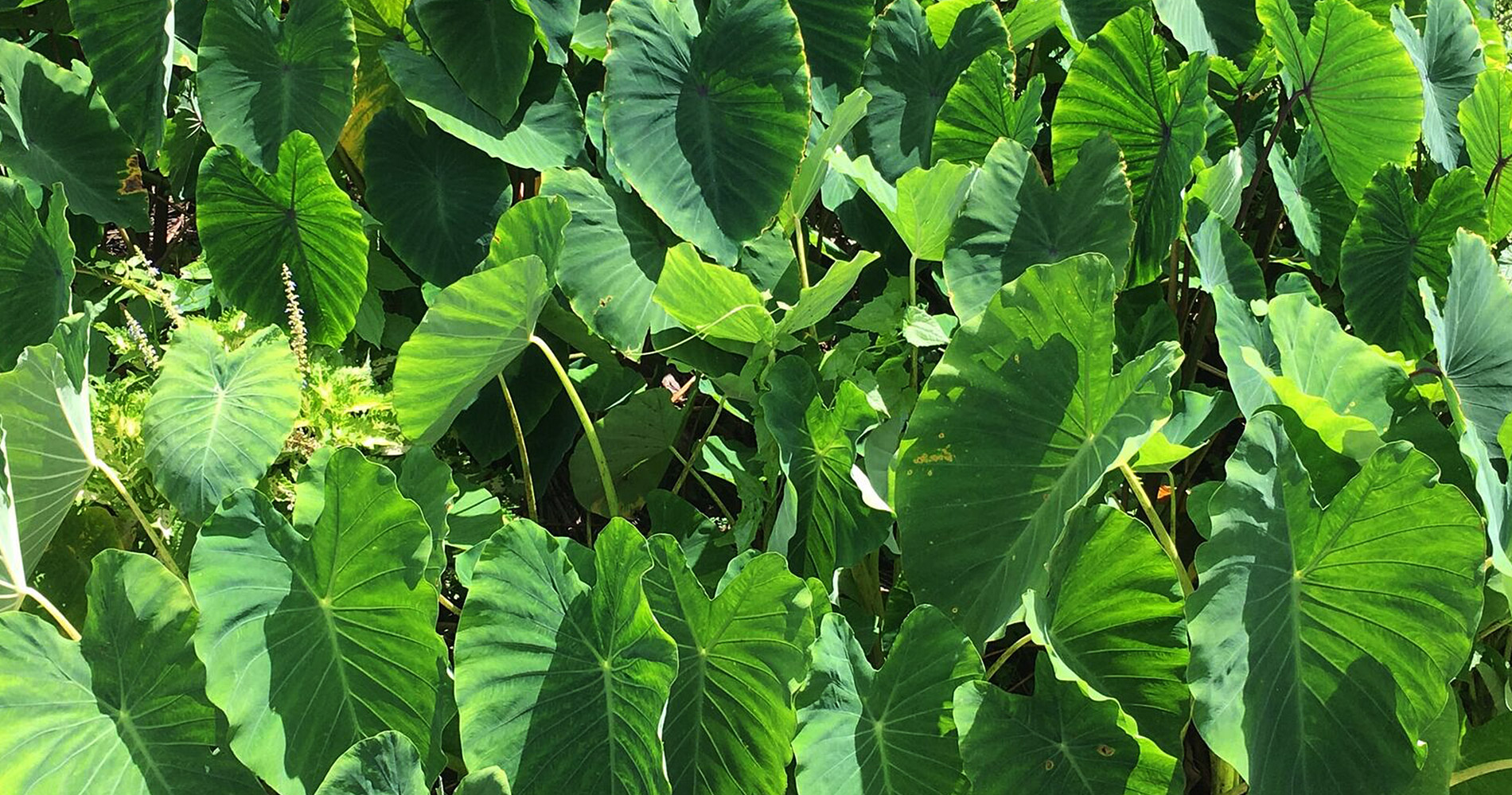Moni tīre
1. (n.) Chilean money, the former standard of exchange in the islands .
ro‘i Pronunciation
1. (Be) tired, weary, sated, bored; fatigue, etc. 'E tangata ro'i kore 'aia i te 'aere nā raro 'ua ki te 'anga'anga. He never seems to get tired walking to work. E ‘akaoti i te ‘anga‘anga mē kite koe i te ro‘i. Stop working when you feel tired. Te ro'i iā koe! You make me tired! I tō māua ro'i'anga i te ākara i te teata, kua 'aere māua ki te kāinga. When we got tired of watching the film, we went home. Kua anga te ro‘i. The tiredness has passed off now. A bed, mattress. Tē ma'ani ro'i rākau nei au. I‘m making a wooden bed. ‘E ‘āriki ro‘i mānea tēnā. That’s a lovely bedspread. Tē ‘akaanga nei au i tōku ro‘i. I‘m taking a rest now. E ‘akamānea i te ro‘i. Make the bed. Ro‘i maki. Sickbed, bed of sickness.
maemae Pronunciation
1. Wither, shrivel, wilt. E vao‘o koe kia maemae te pākiri o te ‘ānani kā kai ei. Leave the oranges till they are a bit shrivelled before you eat them; Kāre au e ‘inangaro i te poe i te tiare maemae. I don’t like to wear a flower that is wilting behind my ear.
2. Dull and tired looking (of the eyes). ‘E ‘ākara‘anga maemae tō mata. Your eyes look tired. [mae RR.].
3. A smallish, shoaling, grey and brown-spotted, painfully-spined rabbit-fish (Siganidae). Kua tāpiripiri te maemae ki te pae i te toka i tō mātou arumaki‘anga. The maemae went in close by the rock when we hunted them; Kia matakite, ko te puta tō‘ou rima i te tara maemae. Be careful or you‘ll stab your hand on the maemae’s spines..
tāro‘i Pronunciation
1. Weary, bore, tire out. Kua tāro'i 'aia iāku i te rave'anga i tāna 'anga'anga. He tired me out doing his work.
‘akaro‘iro‘i Pronunciation
1. (fq.) 'akaro'i. Become tired, bored, weary, fatigued. ‘Eia‘a kōtou e ‘akaro‘iro‘i i te ‘akarongorongo atu‘anga i tāna au tua. Don’t become bored at listening to his stories.
tāro‘iro‘i Pronunciation
1. weary, bore, tire out. Kua tāro'iro'i tika ai koe iāku i te 'aere'anga mai 'inā kāre 'ua koe i te maki. You've made me drag all the way out here and now there is nothing at all the matter with you. Nā te 'anga'anga i tāro'ir'i iāia. All work fatigued him..
‘akamāuiui
1. (caus.) māuiui. Make sore and weary. Nāna rāi i 'akamāuiui i tōna kōpapa. She herself has made her body sore and weary.
roi
1. (v.t.) to make, to fashion, to frame, to form, to prepare, to obtain, etc.
2. (v.t. pa.t. & pa.p.) of rol: prepared, formed, fashioned, etc: .
e te akakite anga mai I te au pona, e te kakau pu, I roiia e Doreka, iaia I noo katoa ki o ratou — /
Acts – Angaanga -9,39- and showing the coats and garments which Dorcas made, while she was with them.
3. (adj.) tired, weary, fatigued, worn out. akaangateroi, akaanga-te-roi literally means, to turn back the weariness: de-notes: to take a full rest, to rest after labour, to relax: n. relaxation, the act of resting after labour: kia oti teia pae angaanga, ka akaanga-te-roi after we have completed this part of the work, we wil have a good rest. akaroi vt. to make tired, to cause weariness, to show signs of fatigue or weariness, to get tired of doing any-thing, to give way to laziness or to become lazy or indolent.
4. (v.t.) to gather food: .
kua aere nga vaine ka roi te kai /
the woman have gone to prepare the food
5. (v.t) to meet, to gather together, to assemble-same as .
uipaa: kua roi mai te tangata ki rorot i te /
are the people met togehtor in the house.
ro‘iro‘i Pronunciation
1. Be weary, tired, etc. Kua moe vave 'aia nō te ro'iro'i. He went to sleep early because he was tired. ‘E ‘anga‘anga ro‘iro‘i tēia nāku i te rave. I always get bored with doing this job. ‘Aere mai, ‘akaanga‘ia tō kōtou ro‘iro‘i. Come on, give yourselves a rest now. Kua ro'iro'i aia i te 'aere ki va'o. He was too tired to go outside.
‘iu Pronunciation
1. Fed up, bored; aversion. Kua ‘iu au iā koe. I‘m fed up with you; ‘E kai ‘iu tika ai tēia nāku i te kai. I‘m tired of eating this (same old) food; Kua takataka‘i rātou i te ta‘ua i tō rātou ‘iu‘anga i te ‘akarongo i tāna tuatua. They stamped on the floor when they got fed up with listening to him; Kua ‘iu rātou i te tiaki iāia. They got tired of waiting for him. (See (tā-)‘i‘iu.) [Pn. *fiu.].
akaparuparu
1. (v(caus)) to pretend to be tired. (< Redup. Of akaparu.) ua akaparuparu ia iāia nō te maki. He/ she pretends to be tired because of a disease. ua akaparuparu ia iāia kia kore ia e angaanga. He/ she pretends to be exhausted so that he doesn't need to work.
potopoto
1. (p. adj.) consumed, exhausted: tired out, used up: adj. weary, worn out, not having strength or patience, tired: .
kua potopoto taku ao i te ako i a koe /
my breath is used up in admonishing (or advising) you, (or, I am weary of scolding you).
rarangaoa
1. (v.i.) to become weary or impa-tient, to become tired, to long for: v.t. to sear out or make weary, to reduce the strength or patience of, to harass: weary, worn out, tired.
2. v.t. & vi. to make or cause to become weary or impatient, to cause to harass, etc.
kua rarangaoa au i toku nei ngengeti ua anga- /
Psalms 6,6-I am weary with my groaning.
roiroi
1. (adj.) redup. of roi: very tired, weary, fatigued or worn out: v. to be very tired, weary, fatigued or worn out: n. weariness, fatigue, from labour of body or mind, or from listening to perpetual or continuous talk, scandal, repetition of a subject, etc.
2. (v.i.) to fatigue, to reduce to weari-ness, to eshaust one's strength, to ha-rass .
3. (v.t.) intens, to cause tiredness, weariness, fatigue, etc.
te roi i a koe you weary one; kua roi-roi au i a koe I am /
tired of you;
rohirohi
1. to be tired, weary. (Syn. paruparu, hiu.) .
ua rohirohi au. /
I am tired
paru
1. (n.) dregs after being wrung. (Syn. ota, saru.) .
2. (n(fn)) broad alfonso, Boryx .decadactylus. (Rar. kū pā.) .
3. to go flat (of tire). (Redup. paruparu. || Syn. puta.) .
paru te uira. /
The wheel has gone flat.
paruparu
1. (v.) to be tired, soft, not solid, weak. (Pass. paruparuhia. || .
paruparu te kōpapa /
1) to be sick. 2) to be tired, exhausted. 3) to be lazy.
paruparu te one /
The sand beach is soft. (It is difficult to walk on the sandy beach.)
paruparu tikāi toku kōpapa /
My body is really tired
paruparuhia uā ika nei /
This fish is now deadly tired. (It does not jump up any longer.)
kua paruparuhia au /
I am tired
akaea
1. (v.) to breathe, have a breath, have a rest. ka akaea. [I] will have a rest. ē koro akaea i roto i te tai. [We] cannot breath in the sea. Kua hiu au i te angaanga keri rua; kā noho au ki raro ka akaea ai. I have got tired with digging holes; so I want to sit down to have a rest.
hāpikepike
1. To be weak, sick, tired, lazy. (Syn. Paruparu.) .
Hāpikepike te kōpapa /
[I am] tired


